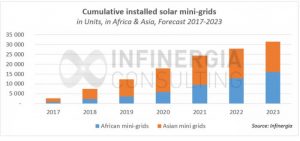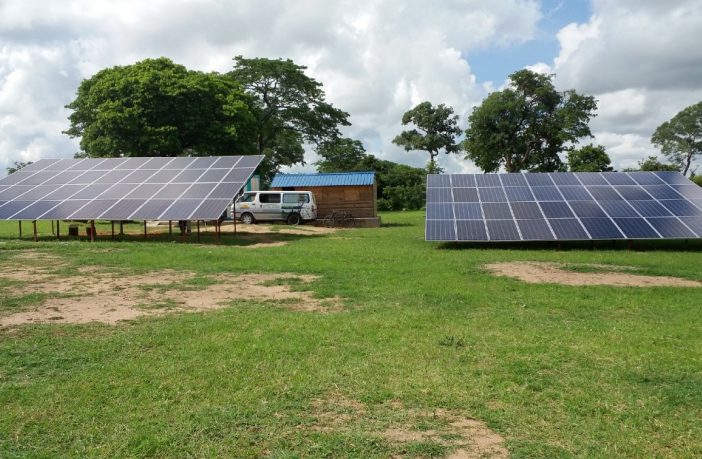In the Africa and Asia markets, the number of solar mini-grid projects is expected to grow from 2,700 units in 2017 to over 31,000 units by 2023, with 51% of these figures to come from Africa. This is according to a new report from the clean energy consulting company Infinergia, the ‘Mini-grid for Village Electrification: Industry and African & Asian markets analysis‘.
The findings note that there are over 2,000 mini-grids in Africa, solar projects accounting for 40% of those. It was highlighted, that with an enabling environment and regulatory framework, by 2023, solar mini-grids are expected to scale rapidly to 16,000 sites.
In Asia, over 69,000 mini-grids have been identified (most of them being hydro or diesel). Solar mini-grids are mainly pulled by Indian initiatives and could rise from less than 2,000 projects in 2017 to over 15,000 by 2023.
According to the report summary, in Sub-Saharan Africa and to a lower extent in Asia, industry actors, public institutions and national governments are developing frameworks and associations that help the mini-grid market to maturate.

Projected installed solar mini-grids in Africa and Asia
On the industry side, component manufacturers (e.g. Genset, Power Electronics, Batteries) are taking part in this market by either developing internal solutions (e.g. Energy Storage Systems or ESS, Power Conversion Systems or PCS, turnkey Mini-grid) or by taking stakes in existing actors.
Energy Management Systems, a central component of those systems, are also getting ‘smarter’. This allows for a better integration of hybrid systems in larger size projects and an optimisation of costs.
Author: Babalwa Bungane
This article was originally published on ESI Africa and is republished with permission with minor editorial changes.















